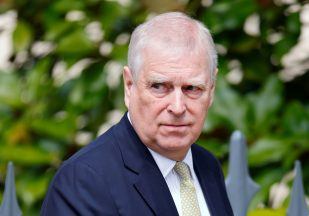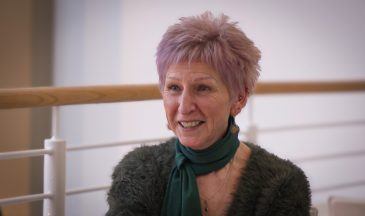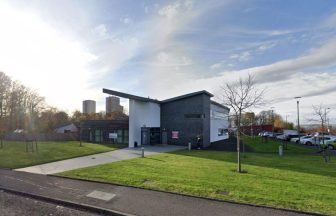The family of a six-year-old girl in desperate need of a new heart say they have been “waiting in limbo” for months.
Brie McCann, from Robroyston, was born with Ebstein’s anomaly – a rare condition that affects the flow of blood through a valve in the heart.
As her condition has deteriorated, her case was referred to specialists at Great Ormond Street Hospital.
She has been an in-patient at the Children’s Hospital in Glasgow for eight weeks and was placed on the urgent transplant list in August.
Mum Jodie told STV News: “It was really hard at the start when she moved into hospital. I must admit it was a big challenge for the whole family.
“There was loads of sleepless nights, loads of adjusting to monitors and noises and staff changes but personally, I think she’s coped so well.
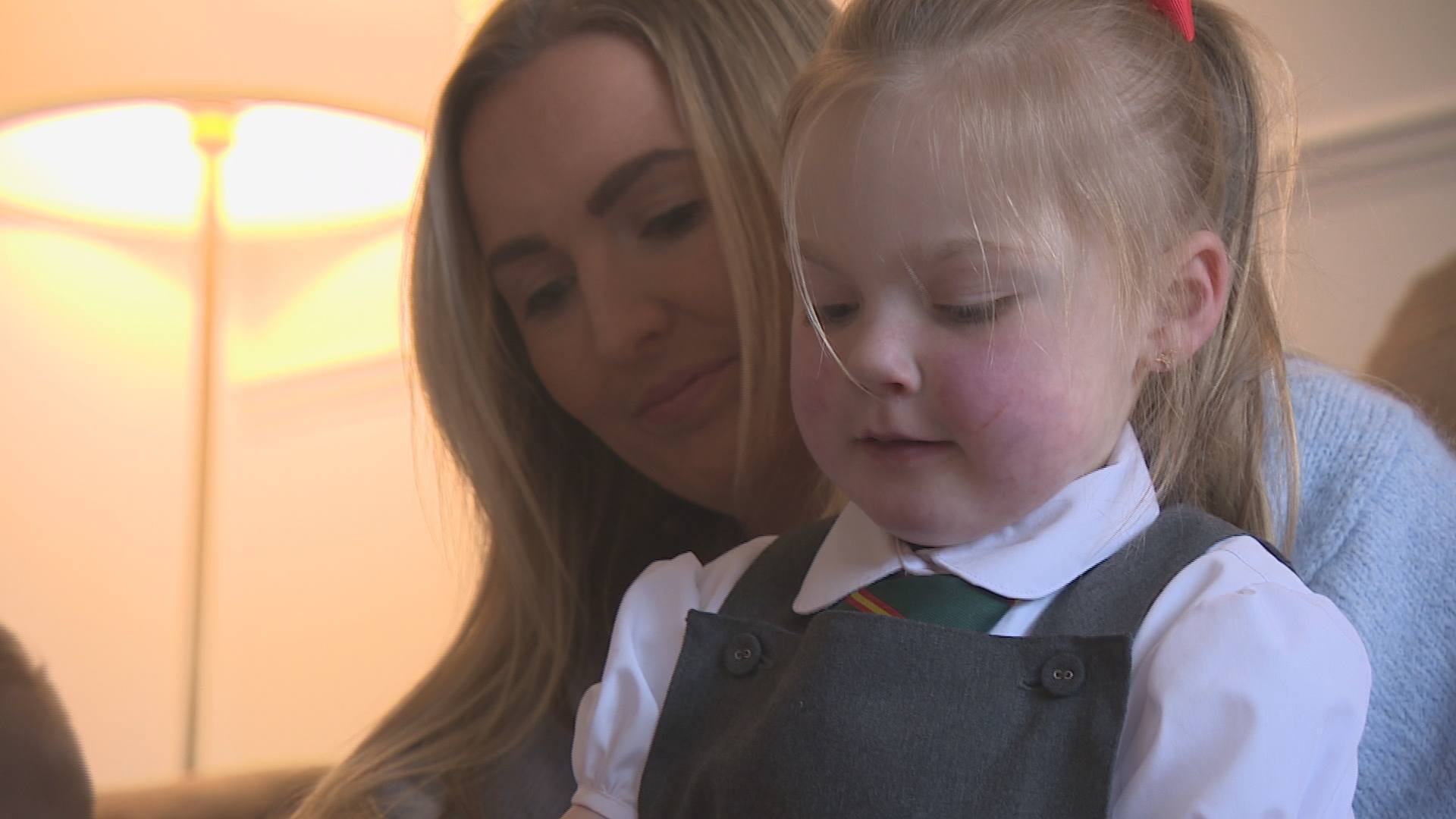 STV News
STV News“There are times when I feel like she’s missing out on the normal things. I get really emotional when I think about her missing out on school, knowing that all her classmates are going back.”
Ebstein’s anomaly can be detected during pregnancy but in this case, it wasn’t discovered until after birth.
Brie’s parents, Jodie and Gary, both 34, were told that Brie would need operations when she reached school age.
The schoolgirl was due to undergo her first of two operations in December last year, however, on the day of the surgery the medical team revealed that Brie was too unwell to go forward.
Consultants said the only option left for Brie was a full heart transplant.
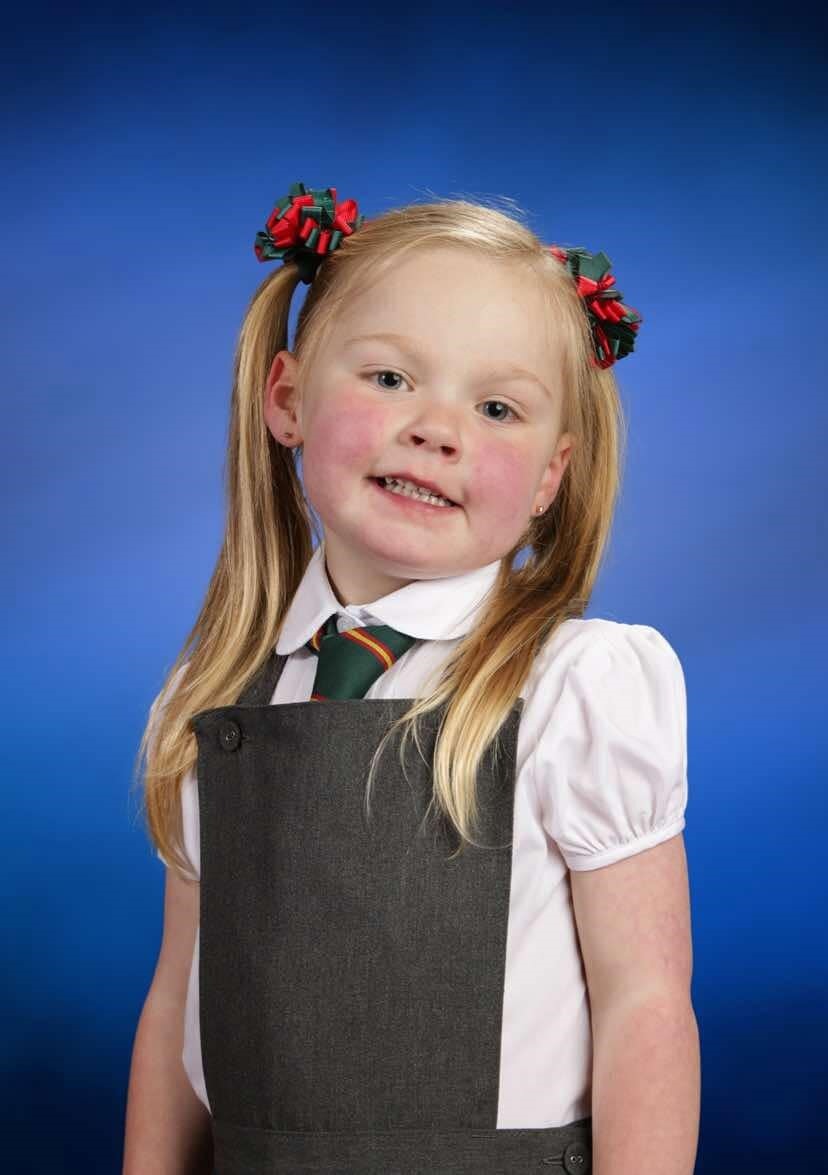 Jodie McCann
Jodie McCannShe was then placed on a waiting list for Great Ormond Street Hospital in London – but there’s still no guarantee when, or if, a donor’s heart will become available.
“It is just really hard. It’s a very anxious time just waiting because obviously we see all the statistics about how many people pass away before they actually receive their organ.
“It is just such a worrying thought, thinking that could be her. I just wish that I knew it was definitely going to happen.”
As a mother, Jodie admits she struggles with difficult emotions around the process.
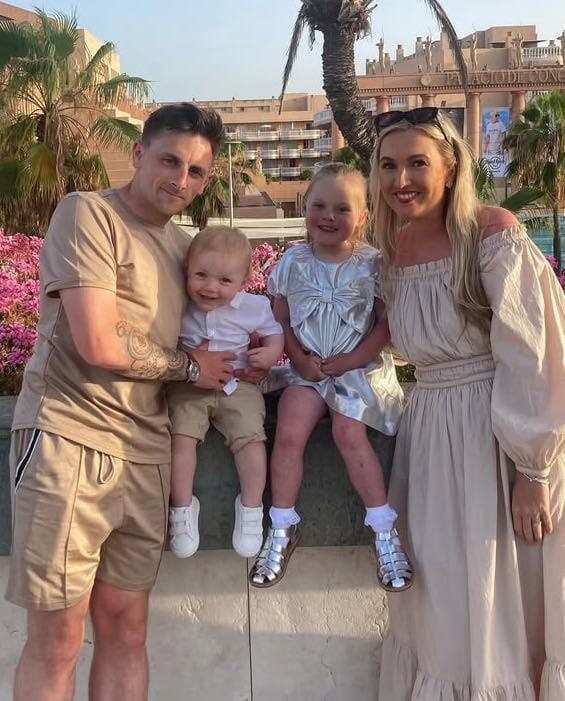 Jodie McCann
Jodie McCann“It’s been really hard for me to get my head around the fact that someone else is going to have to pass away to give her a heart,” she said.
“We’re waiting for someone else to go through what we potentially still could go through. I actually can’t even fathom what that must be like as a parent to make that decision.”
Jodie shared a heartfelt plea to families to consider registering their child for organ donation to help save other young lives.
“I would like to get the message across to people that child organ donation is still opt in. It’s not automatically opt out,” she said.
“It’s important; with children being so small, they’re limited by the size of the organ. Then, you need to take into consideration blood group and all that probability.”
‘My transplant changed my life dramatically – now I’m giving back’
Scots are being urged to tell their loved ones that they want to be an organ donor to ensure their wishes are honoured in the event of their death.
More than 500 people in Scotland are waiting for transplants – but even though the donation system is opt-out, families can refuse consent on behalf of the individual at the critical time.
Doctors and campaigners warn lives are being lost because people are failing to tell their families they want their organs to be donated.
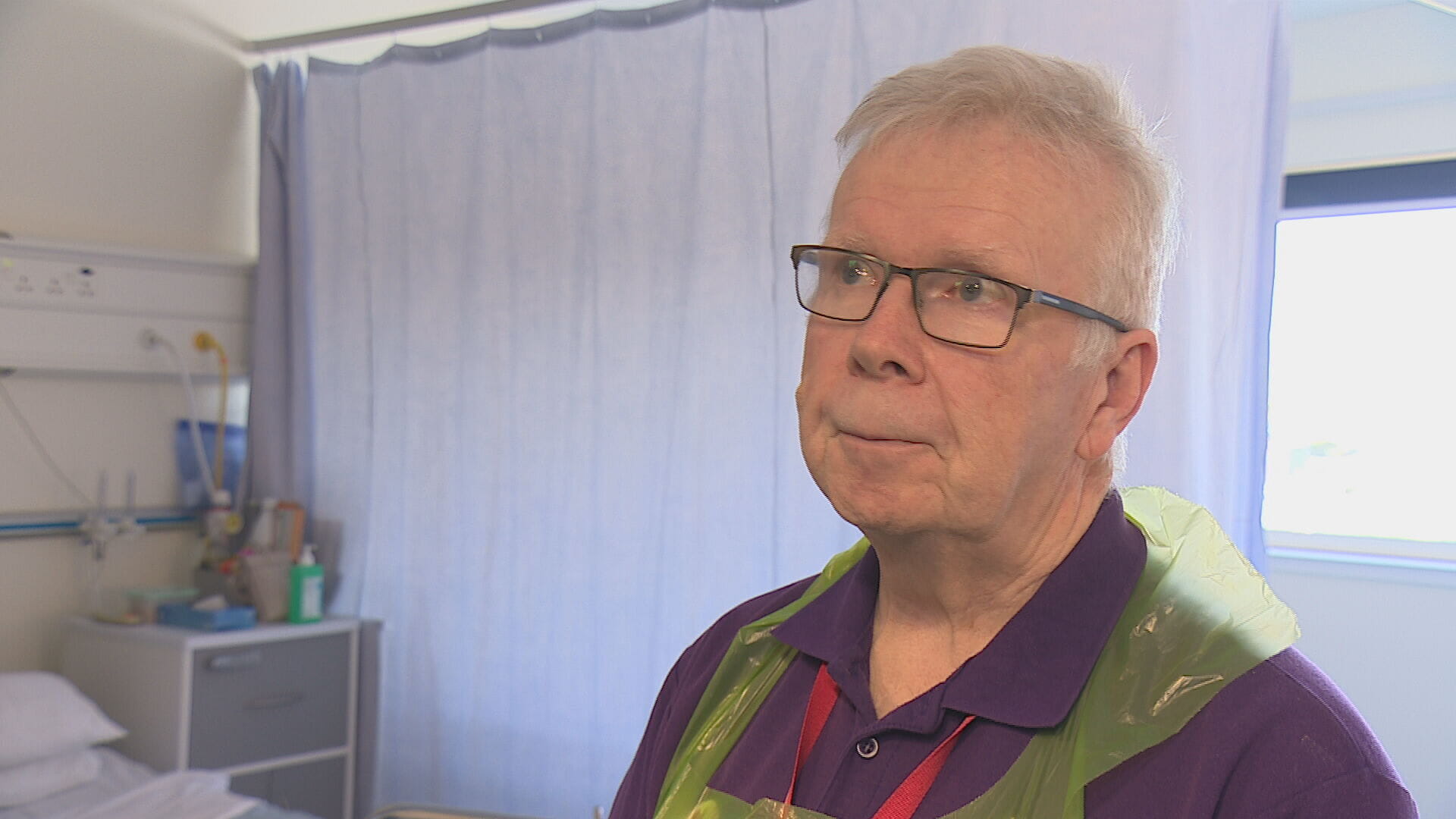 STV News
STV NewsMoray underwent a liver transplant in 2018 after being diagnosed with non-alcohol related fatty liver disease (NAFLD) and cirrhosis.
The retired service manager now volunteers at the Edinburgh Royal Infirmary helping other patients.
“I wanted to give back to the people who looked after me in here and the donor’s family as well,” he said.
“They’re a bit apprehensive about what life will be like after a transplant. When they see me wandering around, making tea, coffees, and staff taking the mickey, it gives them hope as well – that life will be more normal than they thought before they came in.
“It’s really good for them to see someone who has been through the process themselves, living a full and active life afterward.”
Moray describes waiting in hope for “the call” as a stressful time.
“It can come any time of the night and day. You never really get used to it.
“If you’re out shopping, away somewhere, you need to have a travel phone with you all the time. It can be a really apprehensive time for patients and families.”
But Moray says receiving a new liver “transformed” him.
“My transplant changed my life dramatically – I’ve never looked back since.”
‘Now’s the time to talk about your wishes’
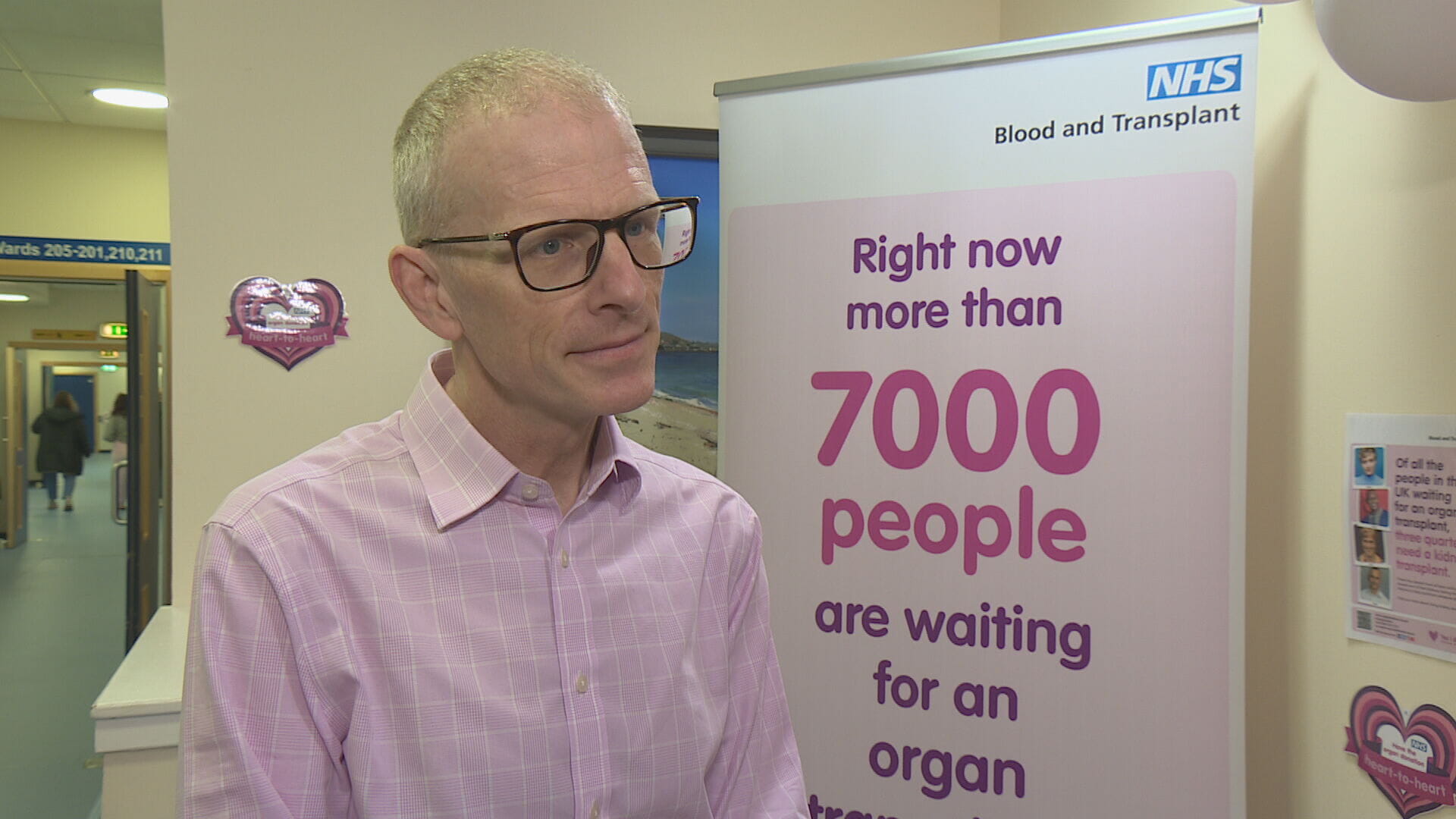 STV News
STV NewsOpt-out legislation has been in place since March 2021 – but doctors say it’s not enough. Families often refuse consent on behalf of their loved one.
Consultant liver transplant surgeon James Powell says waiting lists for a liver have growing since Covid, while donor numbers are falling.
He explained: “Regarding organ donation, a specialist nurse involved in organ function meets with family, and talks through what organ donation is. During that, families can and do decline to proceed with donation.
“Although opt-out does exist, it is still crucially reliant on organ donor registries or to allow for family members and professionals to know what an individual would wish in the event of their death.”
Mr Powell is encouraging people to talk to their families and make their wishes clear.
“I see people of all ages and backgrounds die of liver disease. I see what a liver transplant can do – it can save their lives.
“We have people near to death who come back to the clinic who live full, independent lives. It benefits them, their families, and society.
“It is important for people to take this opportunity to decide if it’s right for them, and make their wishes known to the organ donor register. Now is the time to think about it.”
More information about organ donation, including how to register, can be found on the Organ Donation Scotland website or by calling 0300 123 2323.
Follow STV News on WhatsApp
Scan the QR code on your mobile device for all the latest news from around the country


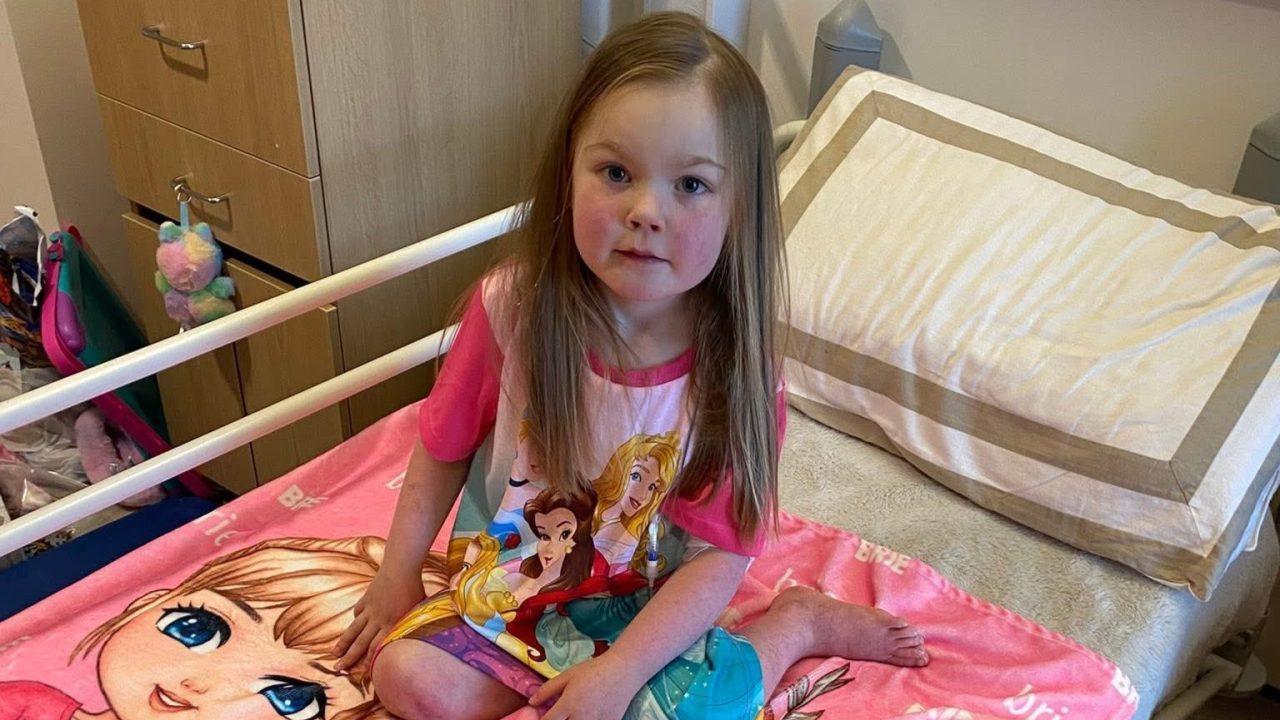 Jodie McCann
Jodie McCann

